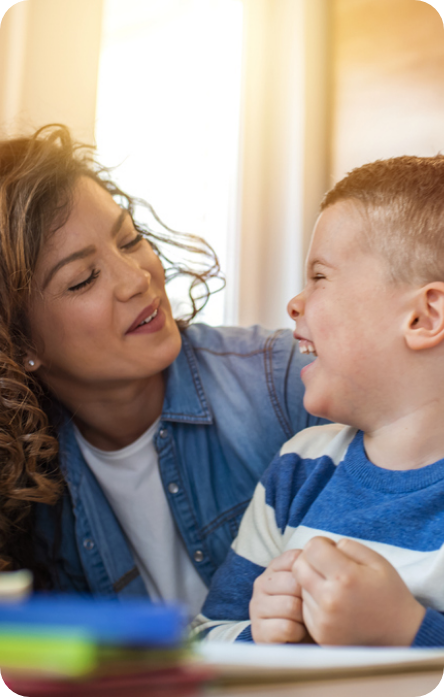Integrative ADHD Treatment for Kids, Teens, & Adults near Farmington Hills, MI
Distractions pile up, tasks go unfinished, and emotions feel harder to manage than they should. For many kids and adults with ADHD, these challenges are part of everyday life, but they don't have to stay that way.
At The Center for Integrative Psychology near Farmington Hills, MI, we offer integrative ADHD treatment tailored to how your brain works, not just how symptoms show up. Our approach includes neurotherapy for ADHD and behavioral support.
These methods are an effective solution for parents seeking a natural, medication-free ADHD treatment for their kids, and they're just as helpful for adults looking to improve focus, organization, and emotional regulation.
If you've been searching for ADHD therapy near Farmington, our team is here to help you or your child move forward with practical tools and lasting support. Reach out today to learn what's possible.
An Innovative Approach to ADHD Therapy near Farmington Hills
Finding the right ADHD support starts with truly understanding how your brain works. That's why we begin each care plan with a QEEG brain map—an in-depth look at your unique patterns of brain activity. This insight helps us create a personalized, noninvasive care plan that includes neurofeedback, neuromodulation, and other supportive techniques.
Clients then take part in ongoing neurotherapy sessions to improve attention, enhance mental adaptability, and support emotional regulation. Every ten sessions, we update the brain map to track progress and fine-tune the treatment plan accordingly.
We tailor therapy techniques to each individual's age, challenges, and goals. Whether you're a student struggling with focus or an adult managing work and home life, our therapists make sure each step of the process is personalized to your lifestyle and goals.
Want to know if this approach is right for you? Contact our Farmington team today.
About Treatment for ADHD Symptoms near Farmington Hills, MI
How many neurotherapy sessions does it take to start seeing my ADHD symptoms improve?
Most people begin to notice changes after about 10 to 20 neurotherapy sessions, though some experience subtle shifts earlier, within the first few visits. Others may take longer, depending on the complexity of symptoms, consistency with the treatment schedule, and individual brain patterns.
At our Farmington clinic, we recommend starting with three sessions per week to build momentum. As focus and self-regulation improve, we gradually space sessions out. Everyone's pace is different, and we keep track of your progress along the way to make sure the plan stays effective. For many, the gains from neurofeedback last well beyond the end of treatment, often 6 to 12 months or more.
Can neurotherapy be combined with ADHD medication?
Yes, it can. Many of our clients use neurotherapy alongside ADHD medication, and that combination often brings stronger, more balanced results. Research shows that when neurofeedback is paired with medication like methylphenidate, improvements in attention and impulse control can be more noticeable, especially in the short term.
Some people find they can lower their dosage or experience fewer side effects once neurotherapy is added. We always tailor the approach to each person, keeping your goals and comfort in mind. If you're already on medication, we'll work closely with your provider to make sure your care is coordinated and effective.
What can I expect during a neurotherapy session for ADHD?
Neurotherapy sessions are low-stress and usually pretty enjoyable, especially for kids and teens. When you come in, you'll settle into a comfortable chair while we place small sensors on your scalp to read your brain's electrical activity. There's no pain or stimulation involved. It's simply a real-time look at how your brain is functioning.
While the sensors are in place, you'll watch a movie, play a game, or listen to music. The activity responds to your brainwaves—when your brain shifts into more focused or calm patterns, you get positive feedback on screen. Over time, your brain learns to repeat those patterns on its own. Sessions typically last 30--45 minutes, and most people leave feeling relaxed and ready to go about their day.
What should I do if I think my child has ADHD?
If your child is showing signs of ADHD, like trouble focusing, impulsive behavior, or constant restlessness, it's worth contacting our office. Our Farmington team specializes in ADHD assessment and treatment for children and teens. We'll start with a thorough evaluation to better understand what's going on and build a personalized treatment plan from there.
Before your appointment, it helps to jot down examples of behaviors you're noticing and how they're affecting your child's daily life. ADHD is a treatable condition, and with the right support, kids can thrive at home, in school, and socially.
What can I do at home to help my child with ADHD?
There's a lot parents can do to support a child with ADHD, and small changes at home can make a big difference. Here are some of the most helpful strategies:
- Create consistent routines so daily tasks feel more manageable.
- Break tasks into steps and keep instructions simple and clear.
- Praise good behavior often to encourage confidence and follow-through.
- Support healthy habits like sleep, nutrition, and regular movement.
- Limit distractions by keeping spaces calm and clutter-free.
- Encourage outdoor time since nature can ease restlessness and boost focus.
- Use calm, consistent discipline that reinforces clear expectations.
These everyday practices, combined with personalized ADHD behavioral therapy at our Farmington clinic, can help your child build focus, confidence, and self-regulation.


